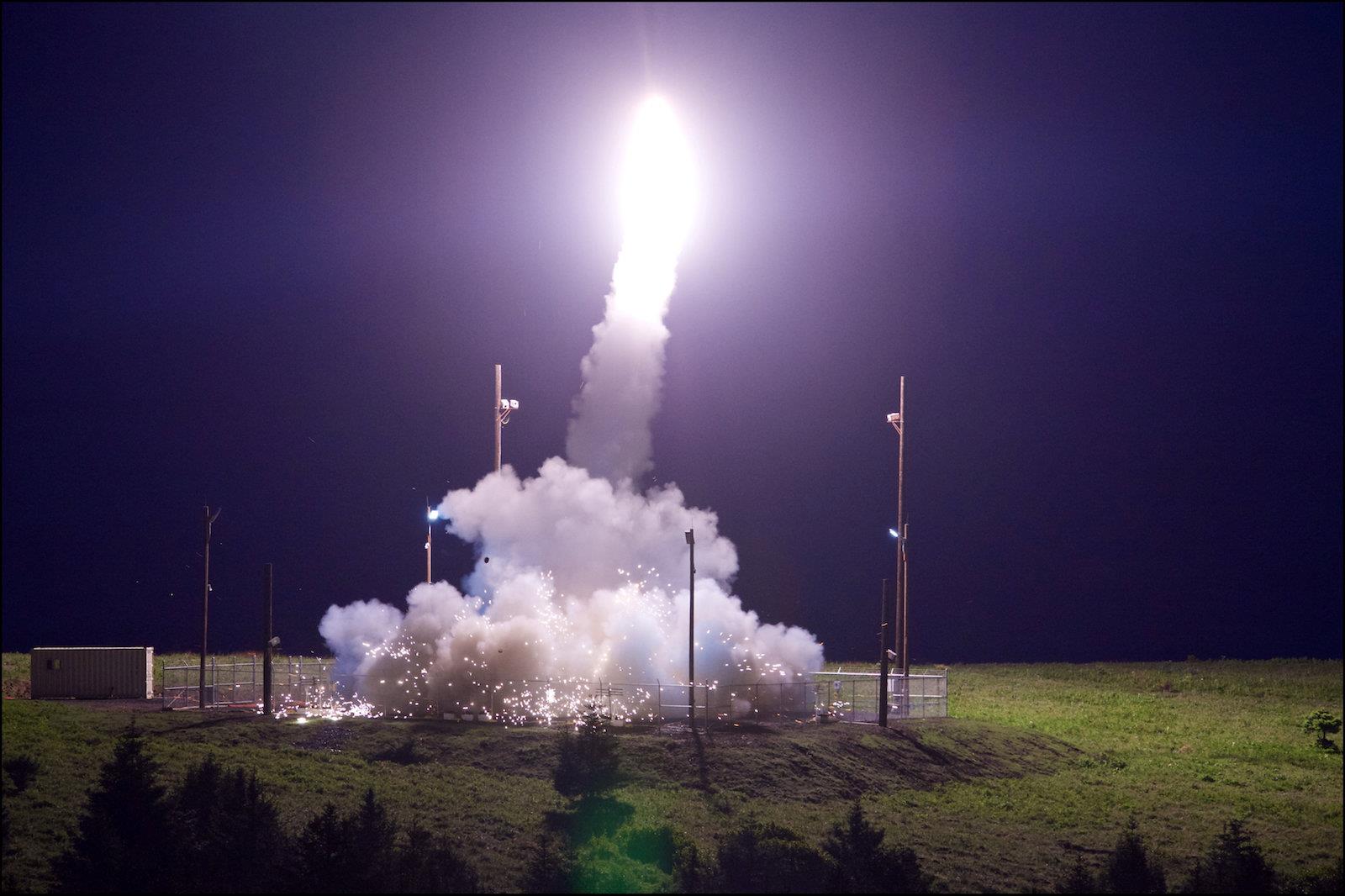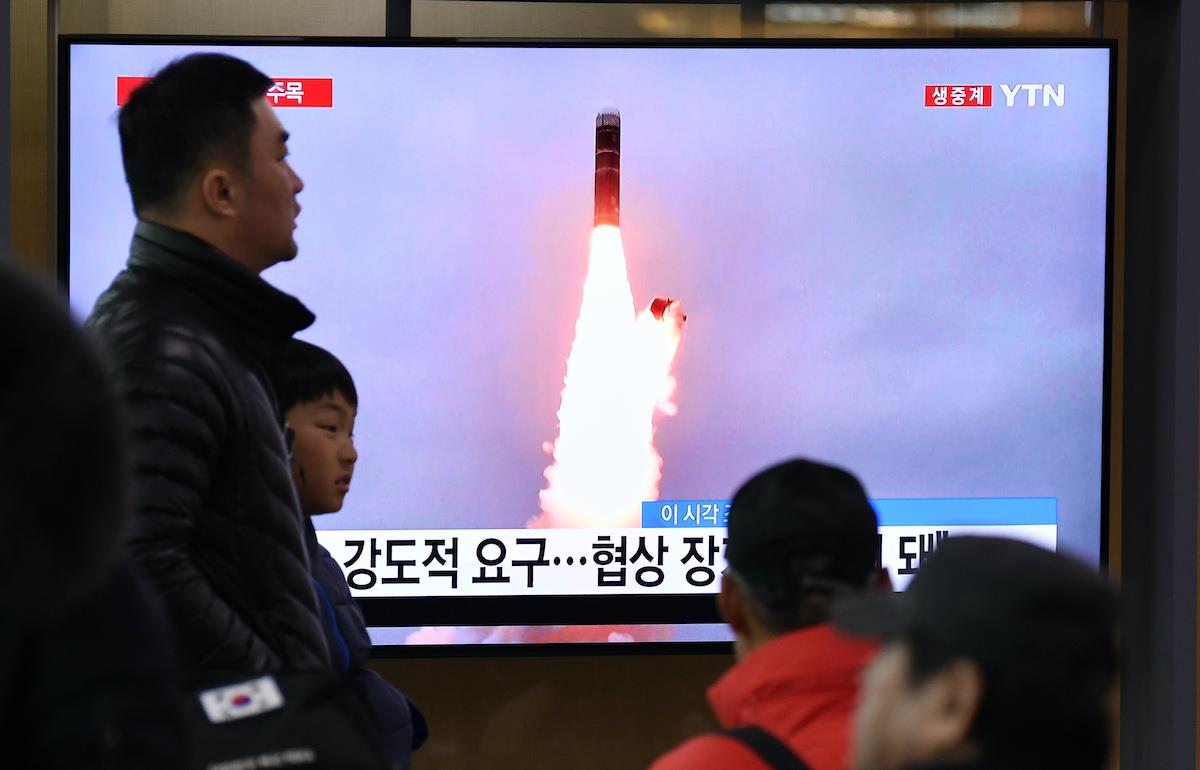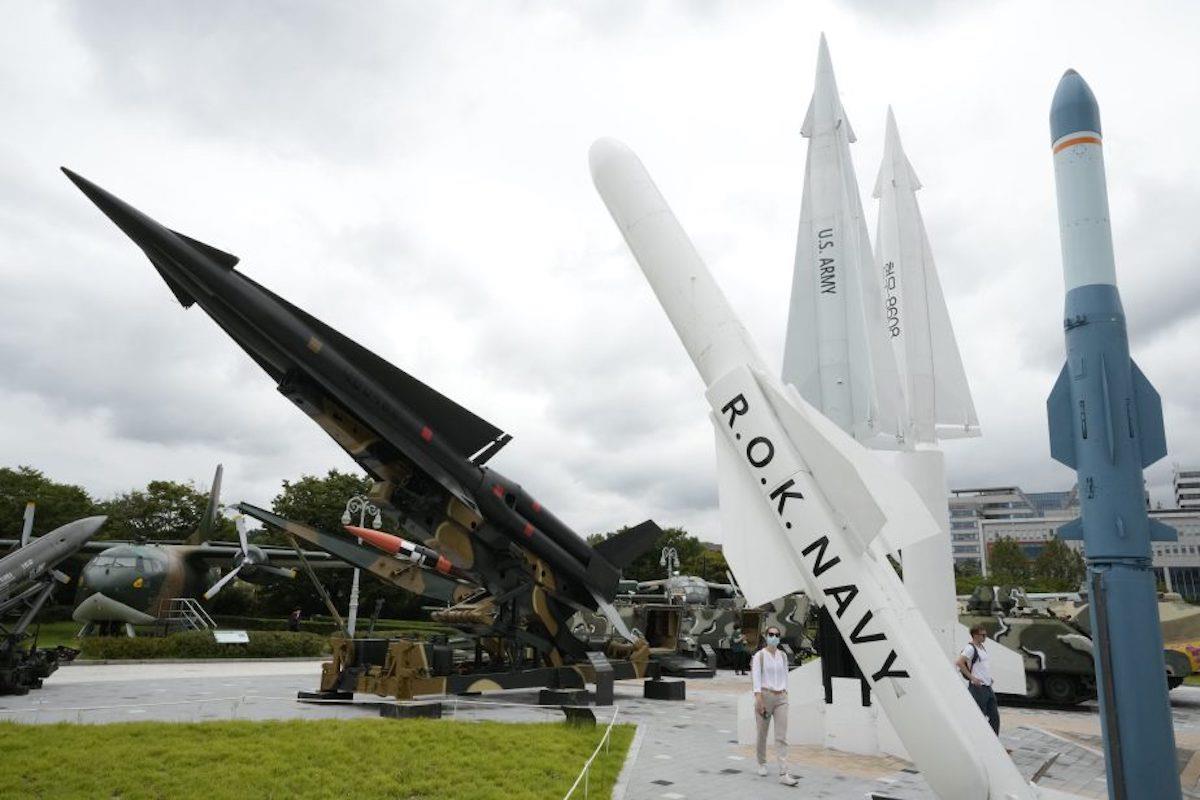(MENAFN- Asia Times) Stranded in the deteriorating East Asian security environment, South Korea is witnessing unprecedented turbulence. The nuclear build-up in North Korea has baffled the South Korean security elite.
While policy options have been floated to reduce South Korea's insecurity, measures to change the status quo could potentially intensify Seoul's vulnerability and expose it to strong reactions from adversaries.
A premature declaration to pursue the nuclear option would stoke“incentives for aggression” from regional actors, potentially propelling China and North Korea to retaliate. China has previously responded to South Korean attempts to shore up its defenses by imposing economic sanctions.
If South Korean elites decide to pursue nuclear weapons, it could lead to more stringent measures from Beijing – one possibility being coercion and blackmail aimed at knocking South Korea off course from its nuclear endeavor.
Beijing's expansion of its nuclear arsenal is a manifestation of its coercive ploy to repress Washington's allies like South Korea. It is attempting to drive a wedge in the alliance, potentially“decoupling” them. If Seoul's desire for a bomb manifests, it will only accelerate Beijing's aggressive steps.
Though South Korea seldom aims to balance China, its attempt to neutralize the North Korean threat is misperceived in Beijing due to paranoia about US intentions. North Korea's
unabated spree
to develop delivery systems and nuclear-capable missiles has been
complicating south korea's security environment .
If Seoul declares itself a nuclear weapons state, Pyongyang's warning to retaliate by using nuclear weapons may get traction - something South Korea is not equipped to counter.

A THAAD interceptor is test-launched in Kodiak, Alaska, on July 11, 2017. Photo: Leah Garton / Missile Defense Agency / Handout
The much-anticipated
us terminal high altitude area defense
(THAAD) system, deployed in the far south of South Korea against North Korean medium and intermediate-range ballistic missiles, is not potent enough to save Seoul. The indigenously built
cheolmae-2
medium-range surface-to-air missile (KM-SAM) is riddled with technical loopholes.
Unless Seoul hastens the deployment of its“strategic command” to bolster its defenses against cruise and ballistic missile attacks under its“Three Axis” system, the call for nuclearization would only make Seoul more vulnerable.
Recourse to alternatives like“nuclear-sharing” with Washington does not serve many purposes either. While“loaning” a tactical nuclear weapon
may signal
alliance commitment, stationed nukes in South Korea would be
more vulnerable
to pre-emptive attacks.
For Washington, this might merely signify an attempt to sate Seoul. But unless Washington demonstrates its intent to defend Seoul, these weapons will lack deterrent utility for South Korea.
In the 1970s, former president Park Chung-hee's government
failed to assuage
its insecurity even when the US tactical nuclear weapons were on South Korean soil. As former US president Richard Nixon's administration
reduced us troops in south korea , US abandonment became apparent.
Seoul realized the futility of“extra-territorial nuclear deployment”, leading to calls for indigenous nuclear armament. Apprehension about the credibility and resolve of the US alliance nosedived since former US president Donald Trump's administration.
The Washington Declaration of 2023 – set to redeem US reliability –
never explicitly stipulated
establishing deterrence through nuclear retaliation, a crucial point that South Korean President Yoon Suk Yeol misinterpreted.
The declaration was
meant to enhance
“intra-alliance consultation on nuclear matters.” But it ended up being more of a consolatory gesture from Washington, highlighting Washington's desire to reassure Seoul.
Even symbolic appearances of US strategic assets on the Korean peninsula, rather than discouraging North Korea, would further inflate its insecurity. The expectations around the
sailing
of the US Ohio Class SSBN are misplaced, as nuclear assets deployed in proximity will make Pyongyang take them seriously, prompting it to respond more aggressively.
None of the notable policy options available at Seoul's disposal works in its favor. Going nuclear would dampen its alliance with Washington while hosting US tactical nuclear weapons would increase the probability of pre-emptive strikes. Promises of US extended deterrence do not obligate the US to reciprocate its rhetoric.
The solution lies in strictly maintaining the status quo and avoiding any deep US engagements like the employment of US strategic assets.
Symbolic assurances through the Washington Declaration serve such a purpose. While it makes sense to reassure allies by promising better outcomes for regional security through deeper engagements, which Seoul also prefers, such a choice is an imprudent one as it would conjure adverse provocations from North Korea and China.
Washington's role as an off-shore balancer is optimal. Strengthening Seoul's relations with japan can boost South Korea's conventional defensive capacities without instigating North Korea and China and conserve the status quo.

People in Seoul on January 1, 2020, watch a television news program showing file footage of a North Korean missile test. Photo: Asia Times files / AFP / Jung Yeon-je
Even if Pyongyang spirals as a response to South Korea's
attempts at balancing , the considerable US presence in South Korea would compel Washington to respond.
In the face of an adverse reaction from North Korea, any kind of US abandonment of Seoul will cost the United States its reputation as Seoul's security guarantor and wreck its alliances in the region, diluting its efforts to counter China.
The existing US-South Korea alliance arrangement is optimally set. South Korean attempts to secure itself with nuclear weapons would engender instability. Seoul's security lies instead in incremental steps to enhance its defensive capability.
Rahul Jaybhay is a PhD Student at the School of International Studies, Jawaharlal Nehru University, New Delhi and associated with the Asia Society Policy Institute, New Delhi.
Anondeeta Chakraborty is a postgraduate student at the School of International Studies, Jawaharlal Nehru University, New Delhi.
This article was originally published by East Asia Forum and is republished under a Creative Commons license.
Like this:Like Loading...





















Comments
No comment